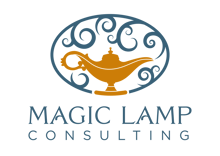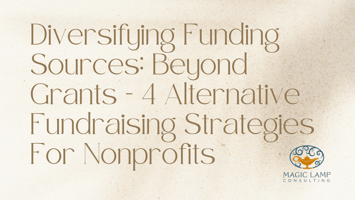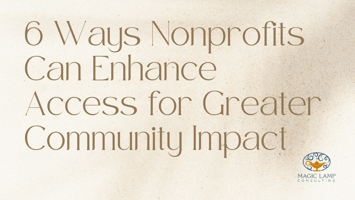How to Maintain a High-Functioning Nonprofit Board of Directors

In the world of nonprofits, an effective board of directors is the bedrock upon which success is built. A high-functioning board can steer an organization through challenges, propel it toward its mission, and ensure its sustainability for years to come. However, maintaining such a board requires intentional effort, strategic planning, and a commitment to excellence. In this article, we'll delve into key strategies for nurturing and maintaining a high-functioning nonprofit board of directors.
Clear Vision and Mission Alignment:
At the heart of a successful nonprofit board is a shared vision and a strong alignment with the organization's mission. Board members should deeply understand and believe in the purpose of the nonprofit they serve. Regularly revisiting and reaffirming the organization's mission ensures that all decisions and actions are in sync with its overarching goals.
Robust Recruitment and Onboarding:
Building a high-functioning board starts with recruiting the right individuals. Seek out candidates who bring diverse perspectives, relevant expertise, and a genuine passion for the cause. Once recruited, invest in a comprehensive onboarding process to acquaint new members with the organization's culture, operations, and expectations. Clear role descriptions and orientation sessions can set the stage for their active engagement from the outset.
Cultivating Board Diversity:
Diversity within the boardroom is not just a buzzword; it's a strategic imperative. A diverse board brings a wealth of perspectives, experiences, and ideas to the table, enriching discussions and decision-making processes. Embrace diversity in terms of gender, race, age, expertise, and background to foster innovation and ensure the board reflects the communities served by the nonprofit.
Continuous Education and Development:
To maintain a high-functioning board, prioritize ongoing education and professional development for all members. Offer opportunities for training, workshops, and conferences that enhance their understanding of nonprofit governance, fundraising strategies, legal obligations, and industry trends. Encourage participation in leadership programs and provide resources for continuous learning to empower board members in their roles.
Fostering Open Communication:
Effective communication lies at the heart of board cohesion and effectiveness. Cultivate an environment where board members feel comfortable expressing their opinions, raising concerns, and engaging in constructive dialogue. Regular board meetings, retreats, and informal gatherings provide platforms for transparent communication and collaboration. Leverage technology tools for virtual communication and document sharing to facilitate seamless collaboration, especially for geographically dispersed boards.
Setting Clear Expectations and Accountability:
Establish clear expectations for board members regarding attendance, participation, fundraising commitments, and ethical conduct. Formalize these expectations through board policies, codes of conduct, and performance evaluations. Hold members accountable for fulfilling their duties and meeting established benchmarks. Recognize and celebrate achievements while addressing any lapses in performance or adherence to standards promptly and respectfully.
Strategic Planning and Evaluation:
A high-functioning board is proactive rather than reactive, engaging in strategic planning to steer the organization towards its long-term goals. Regularly assess the nonprofit's performance, risks, and opportunities, and adjust strategies as needed. Conduct comprehensive evaluations of board effectiveness, soliciting feedback from members and stakeholders to identify areas for improvement and refinement.
Embracing Innovation and Adaptability:
In today's rapidly changing landscape, adaptability is essential for nonprofit boards to thrive. Encourage a culture of innovation and experimentation, where board members feel empowered to propose new ideas, explore emerging trends, and embrace technology-driven solutions. Stay attuned to shifts in the external environment and be willing to pivot strategies to remain relevant and impactful.
Need additional assistance of creating a Board of Directors for your nonprofit? We are here to help! Put our years of experience to the test by scheduling a free consultation to discuss your needs. We look forward to learning more about your nonprofit soon!




